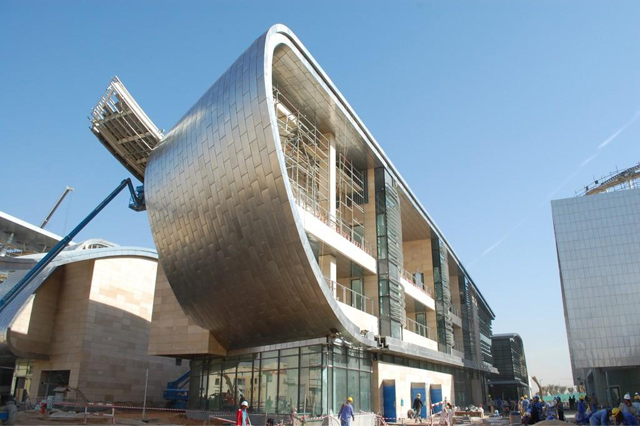
The irony here is clear: the first international LEED certified housing complex is built by an oil research facility in Saudi Arabia. Though in some ways, the construction of the King Abdullah Petrolum Studies and Research Center (KEPSARC) is not so surprising.
Pioneering the sustainable and green building movement in a country with a growing population and dwindling resources seems like a smart economic move for any industry.
In addition to 191 houses with 11 house types, the residential campus boasts conference areas, a data center, four utility buildings and communal areas such as library, dining hall, recreation center, natatorium, mosque and supermarket.
The somewhat isolated community is meant to serve as a spacious and modern community for KAPSARC’s international employees and their families.
The 200-hectare site also includes a photovoltaic (solar) energy field and bio retention swales, which are meant as both functional and visual statements.
When the project was initiated, LEED for homes was not available outside the US.
KAPSARCs architects, the American design firm HOK, and the US Green Building council worked for a number of years to establish a pilot program. KAPSARC is among the first to participate.
In CityScape magazine, Roger Schweyer, project designer and senior architect at the American design firm HOK insists the sites benefits extend beyond its residents, “As an institution, Saudi Aramco (the world’s largest oil production company and the project’s developer) is interested in moving beyond the oil industry, and championing new business opportunities in the Kingdom.
“Sustainable design and construction is a major industry targeted.”
One question we are left with – why didn’t they go for the Middle East-friendly eco standard Estidama?
Images via HOK
This post is sponsored by ABI LED Lighting – your source for energy-saving LED lighting for home, office and commercial venues as well as grow lights for sustainable farming. www.abilights.com / [email protected]

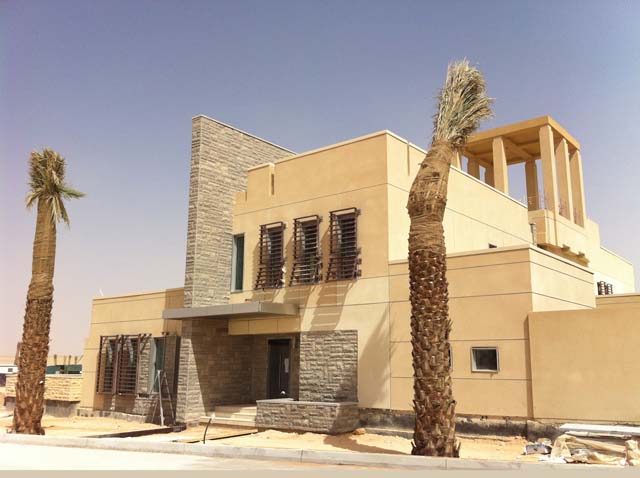
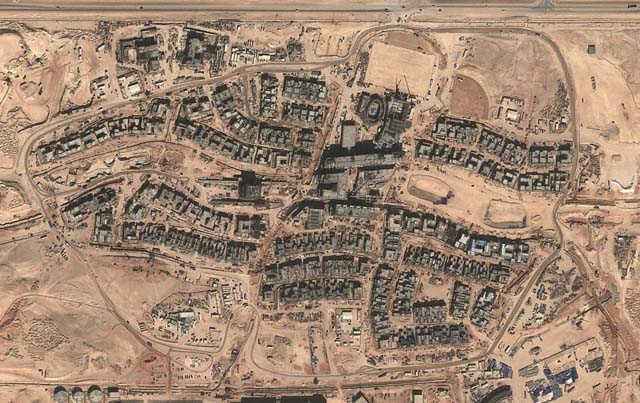
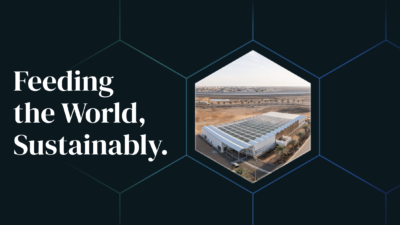
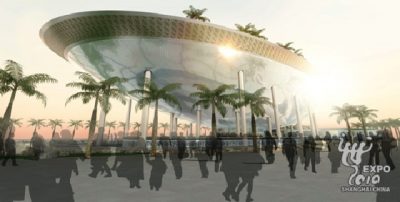
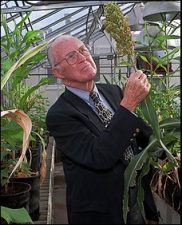
good evening this is Allah Bakhash bhatti can any one guide me to get aramco certification as a HSE officer
Because Estidama is only available to projects in Abu Dhabi. the Abu Dhabi Urban Planning Council created Estidama to certify their own projects and they have no interest in certifying projects outside of Abu Dhabi. Had the Estidama program been used as a guide, there would have been no third party verification. the USGBC’s LEED program is still the only international third party green building certification program.
Most rating systems are zip-code specific and don’t easily adapt to other locations: Estidama is for Abu Dhabi, and QSAS is for Qatar. These guys could’ve gone for BREEAM Gulf – but ideally Saudi would create their own green benchmark – one that emphasizes cuts in material importation and water use too.